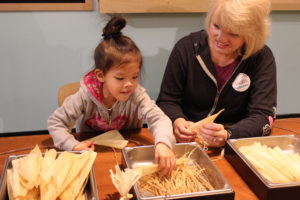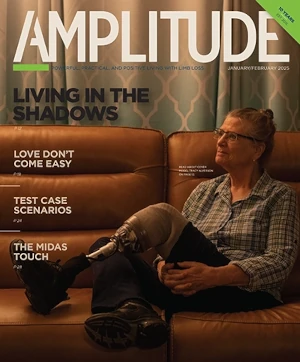Visitors of all abilities will now have additional options for accessing and enjoying Children’s Discovery Museum of San Jose with the launch of the museum’s disability initiative (www.cdm.org/visit/plan-your-visit/access-and-inclusion). New automated internal and external doors with universal design are being installed and a new program for children and adults with disabilities was recently introduced. “Afternoons for All Abilities” is designed to serve children and families of varying abilities on the second Tuesday of each month, during a less crowded and quieter time. The museum’s Quiet Room for anyone needing a private place to relax also received an upgrade.

“This initiative advances our most deeply held values of access and inclusion for all members of the community,” said Marilee Jennings, executive director of Children’s Discovery Museum. “These efforts build upon our existing initiative work with the autism, LGBTQ, and immigrant communities.”
A grant from the California Cultural and Historical Endowment and matching funds from the City of San Jose will support the installation of ten automated doors. They’ll replace the museum’s aging and heavy door sets that were installed before the passage of the Americans with Disabilities Act. These doors will improve access, navigation, and safety for all visitors, especially people with mobility impairments, the elderly, children, and anyone carrying a child or pushing a stroller.
With over 150 interactive exhibits and programs, Children’s Discovery Museum of San Jose is one of the largest museums of its kind in the nation. Since opening its doors in 1990, the award-winning museum has welcomed over 9 million visitors and offers new exhibits each year that respond to children’s diverse educational needs.
Continuing the museum’s successful history of convening advisory boards, a disability advisory group composed of people active in the disability community is helping inform the ongoing initiative. The advisors augment staff knowledge and skills, make recommendations, and share ideas and opinions. They’re often a critical link to an underserved community.
Phase one of the disability initiative is part of the museum’s strategic commitment to inclusion and cultural competence. These values are instilled in all aspects of the museum’s work with the goal of building awareness and understanding among people of all backgrounds, ages, ethnicities, genders, sexual orientations, socioeconomic situations, religions, abilities, and family configurations.
For more information, visit www.cdm.org.
This article was adapted from information provided by Children’s Discovery Museum.



